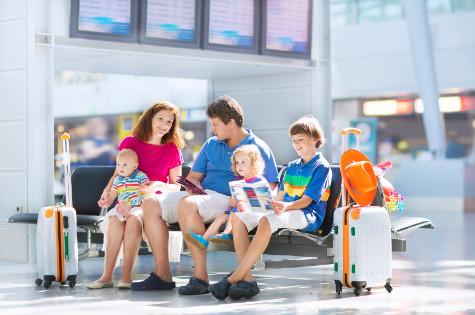|
|
Home
> Going on a holiday?
Going on a holiday?:
7 Tips To Make Sure Your Family Holiday Is A Safe One
By Expert Tips
Date: December 23 2015

1. Research the destination
- When planning overseas travel, you should seek information from a wide range of resources: news, travel and lifestyle media outlets, friends and family members who have visited the destination before, user-generated review websites and forums.
- Smartraveller.gov.au should be used as a resource for anyone planning travel. It includes travel warnings and advice, as well as comprehensive information on safety and security, laws, health and where to seek help if needed. Visit the Travelling with Children page.
- Be aware of regulations in some countries for children travelling alone (i.e. South Africa). This is something to consider if you are a single parent or if something unexpected happens to both parents.
2. Check passports
- Check ALL the family’s passports have at least 6 months validity before booking, or at least before leaving for the airport – or one member of the family might not be allowed onto the flight. You need at least 3 weeks to get a new passport.
- Check the implications of travelling as a dual national on another passport. You may not be able to receive consular assistance from the Australian government if you or your children are travelling on another passport, (or compulsory military service may apply to adult children with ancestry of that country).
- Take copies/scans of all important documents and leave them at home with loved ones.
3. Make a plan with the kids
- Consider talking to older children about the more serious safety and security issues in the country you’re visiting and how to mitigate these risks (involve them in the planning?).
- Consider a range of options to give your kid’s confidence to act if something does go wrong/they get lost, etc. (i.e. hotel card, contact details for family at
- home etc.). Talk to them about choosing a safe local cab, learn a few key phrases together to get help, and give them a small amount of spare cash as a backup.
- Develop a healthcare plan if family members need to travel with certain medications.
- Talk to your doctor or healthcare provider ahead of your trip to make sure you’re prepared.
- Include supplies of the right medications, as well as the right paperwork, such as a letter from your doctor or a prescription.
- Check to make sure medications you plan to travel with are not illegal in your destination(s) – check the ST prescriptions page or with the relevant embassy.
4. Choose the right travel insurance for you
- Ensure your insurance policy covers all family members, the place(s) you are travelling to, the activities you plan to do (i.e. car hire, extreme sports, items left in the hire car like a teddy bear!), and any pre-existing medical conditions.
- Families who are well prepared can – in many instances – resolve issues through having the right insurance, or with the help of family, friends, travel agents or employers.
5. Talk to your family GP
- Sort vaccinations (if necessary):
- Check if vaccinations are recommended or compulsory for the destination(s) you’re travelling to. Children can be especially vulnerable to some illnesses, so it’s important to get the right vaccinations.
- If vaccinations are needed, ensure you visit a travel doctor with enough time to get the full course of injections needed.
6. Stay informed
- Stay informed with Smartraveller.gov.au:
- Subscribe to updates and be the first to know official government advice when travelling.
- Register your travel plans to help us contact you or your family in the event of an emergency.
- Following Smartraveller on Twitter and Facebook is another easy way to stay up to date while you're travelling. You can also download the free
- Smartraveller app.
7. Get consent
- Single parents need to make sure they consent from the other parent to travel overseas with their child.

|
|















__small.png)










